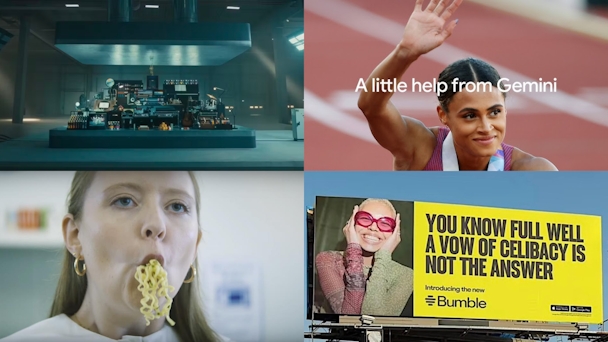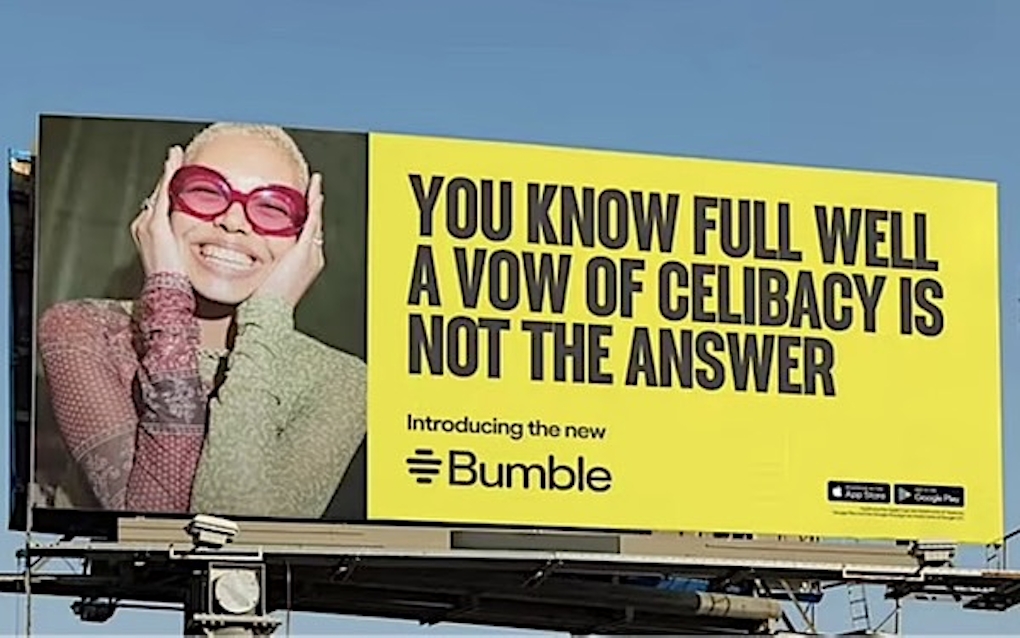6 controversial campaigns from 2024 - and where they went wrong
Advertising has to make an impact to be remembered. Some brands aren't above courting controversy to move the sales dial, but it doesn't always work. Here are 5 campaigns that were close to the line in 2024.

Most controversial ads
1. Pot Noodle’s ‘Slurp’ annoys
‘Nothing Satisfies Like a Pot Noodle’ suggests the Unilever brand's campaign title. In the UK, in 2024, we heard a Pot Noodle bringing a great deal of satisfaction, featuring (probably) one of the longest, most visceral slurps ever aired in the country.
The audio quirk designed to showcase the product’s satisfying taste, wasn't to everyone's taste. While some found the ad humorous, many criticized it for being unpleasant and disruptive. The backlash led to the creation of a "slurpless" version, which failed to quiet the controversy entirely. The brand dialed the slurp down, likely in a fully tongue-in-cheek manner, for future TVCs.
And it also built on the notoriety with an "apology" campaign.
Lesson: One word. Misophonia, a rare condition that causes people to have intense emotional reactions to certain sounds. The slurp was one of them. But the campaign looks to have worked, writes Unilever’s Lena Portchmouth in The Drum. Sometimes to make some egg noodles, you've got to break some... eggs.
Want to go deeper? Ask The Drum
2. Jaguar’s ‘Project Roar’ rebrand more of a meow
What happens when a brand rolls over its legacy? Well, Jaguar's rebrand is the new case study.
As part of its transition to an all-electric luxury brand, Jaguar released the 'Project Roar' campaign, showcasing abstract visuals, cryptic copy, and fashion-forward aesthetics.
Critics argued that the campaign distanced the brand from its automotive roots and alienated loyal customers. While it garnered attention, many questioned if it resonated with Jaguar’s core audience.
Lesson: The campaign does alienate the core audience. Ask yourself why a struggling auto business would dare do that. The classic cars still exist for the fans of its legacy. Could the transition have been handled more gracefully however?
Advertisement
3. Google’s ‘Dear Sydney’ gets AI storytelling wrong
During the 2024 Olympics, Google promoted its Gemini AI with a campaign called 'Dear Sydney,' which featured a child using AI to write a heartfelt letter to an athlete.
While the ad was intended to highlight Gemini’s capabilities, critics accused it of undermining genuine human creativity and over-glorifying AI. Public outcry was so intense that Google ultimately pulled the ad.
Lesson: Ads showcasing AI need to strike a delicate balance between demonstrating innovation and preserving human authenticity. Also, it wasn't a legitimate need case; most would argue that seven-year-olds should learn how to write before using shortcuts.
4. Coca-Cola’s AI Christmas Ad
Coca-Cola used AI to create a holiday ad featuring a hyper-realistic winter wonderland and personalized greetings for viewers. It was a rehash of the beloved 'Holidays Are Coming' work that's been running for decades - that's a lot of brand equity to play with.
While innovative, the ad was criticized by marketers for feeling cold and impersonal compared to the brand’s traditionally heartwarming Christmas campaigns. Many felt it lacked the magic and human touch Coca-Cola is known for.
The question is... did audiences notice or care or were they just happy to see the returning iconography?
Lesson: Coca-Cola pulled this one off. There were some visual imperfections in the work. Would another brand be able to pull this off?
5. Apple’s ‘Crush’ Campaign
Oh look, it’s big tech getting it wrong again. Apple’s 'Crush' campaign promoted the number of features that fit into the latest iPad by using a pneumatic press to crush household and hobby items into the device.
While the visuals were striking, critics accused the ad of being overly violent and sensational, sparking debates about the ethics of glorifying destruction to sell products.
Also, as consumers, we tend to be rather enraptured with our products, and perhaps like the real thing better than those available on the iPad.
Lesson: Big tech needs to realize that as the most powerful companies in the world, and in the midst of tech and AI mistrust, people will pick up on the context of their creatives. Championing creativity need not come at the expense of the past.
Advertisement
6. Bumble’s 'Vow of Celibacy' shames

Bumble’s recent ‘Opening Moves’ campaign included a celibacy-themed billboard that sparked backlash among women, with many calling it tone-deaf and off-brand. Strategists and creatives highlighted the ad’s poor timing, launching amid heightened discourse around women’s safety and right after Tinder introduced its safety-focused ‘Share My Date’ feature.
The celibacy angle, paired with Bumble’s removal of its “women message first” feature, struck many as dismissive of Bumble’s historically supportive messaging.
Lesson: A bit of criticism isn't the end of the world. Despite the uproar, Bumble’s apology earned praise for its humility and empathy, showing that even bold missteps can be opportunities to rebuild trust.
Suggested newsletters for you
The controversies surrounding these campaigns underscore the challenges advertisers face in navigating the fine line between creative risk and public acceptance. While bold concepts often lead to greater visibility, they can also provoke backlash if they miss the mark.
